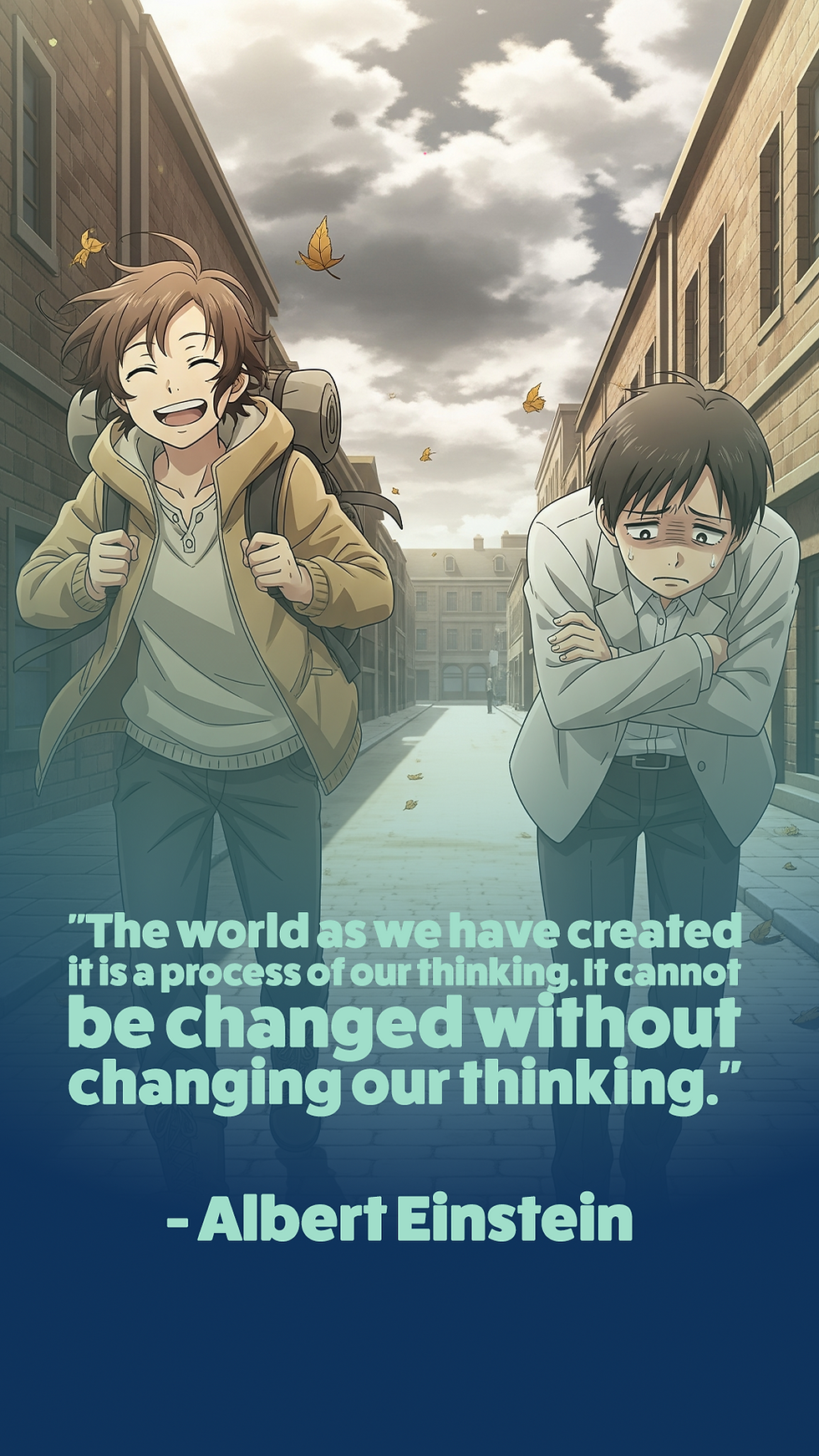The Wanderer vs The Thinker: How Your Mind Shapes Your World
- DRNKN WZRD

- Aug 25, 2025
- 3 min read
Updated: Sep 1, 2025
The world we live in can be confusing. What is good and what is bad? The lines can be blurry, and the answers often depend on our perspective. Where one person sees obsession, another will see dedication. One person’s caution is another’s anxiety.
Despite sharing this planet with 8 billion people, the world you see will be different from most. It's not the circumstances themselves that define our reality, but how we choose to interpret them and respond to them.
The Wanderer vs The Thinker
Let's take two different mindsets walking the same path: the wanderer, who has no rigid plans and is open to what the world has to offer, and the thinker, whose mind is flooded with thoughts—thoughts about himself, other people, that shop window, this car. The thinker thinks about everything.
The thinker has just gotten out of work. The weather is warm, although the sky isn't a beaming blue due to a cloud cover. The thinker hasn't stopped worrying about work despite being on his way home, looking for all the ways it could have gone better. He sees someone walking toward him, and his mind jumps to danger. "I need to be focused; something bad could happen." His gaze is fixed forward, refusing to make eye contact. The two of them pass, nothing happens, so it's back to thinking. "I'm concerned about what passersby think of me. Do they see my clothes? Are they judging my haircut?" He then passes an alleyway and sees two men coming out of a garden carrying something. "They're stealing stuff," he thinks, avoiding eye contact and picking up his pace. "Phew." Next on the path is a group of kids playing football; their ball rolls toward him. Without even stopping, he kicks it back and keeps walking. They ask him who's better, Messi or Ronaldo, but he pretends he didn't hear them to avoid further interaction. Finally, he arrives home, exhausted from a day's work, but the thinking doesn't stop.
The wanderer, who left work a few minutes after the thinker, experienced the same path entirely differently. The wanderer enjoyed the nice breeze and warm temperatures. He walked past a stranger, shared a nod and a smile, and continued on his way. He got to the alleyway and saw the same two men, this time each holding a big bag of sand. The wanderer noticed them slowing as they approached the gate. They made eye contact and waved him over. They asked for help because the gate had closed behind them. After helping them and sharing a laugh and a story, the wanderer again set off toward home. He then came across the same four kids playing football. One of them stopped the game and asked the age-old question, "Ronaldo or Messi?" He walked over and found out who they all thought, seeing it was two versus two. He decided they should settle it with a match and he would be in the goal for them. In the middle of playing the game, everyone stopped caring about who was better and just cared about winning. The wanderer kept walking, finally reaching home 45 minutes later, and could finally kick his feet up and relax.
The Power of Perception
The way our brains are wired, they can't differentiate between truth and thoughts. So, what you believe, your brain takes in and highlights more to you.
There was a test done to see the ability to spot differences in colour between a tribe that doesn't have a separate word for blue and one that does. They asked the participants to pick out the odd colour. Five were green and one was blue. In this test, the tribe that didn't have the word for blue had a much more challenging time spotting it than the others. In the second test, which featured five of the same shade of green and one slightly changed shade of green, this tribe was able to identify the change much easier.
This is because our brains understand "blue," so the difference between blue and green is exaggerated, and we can easily identify it. The way you see the world is a direct result of your beliefs more than anything. The thinker’s world was filled with threats and anxieties, while the wanderer’s was full of connection and possibility. It's not about changing the world around us, but about choosing the lens through which we see it.





Comments